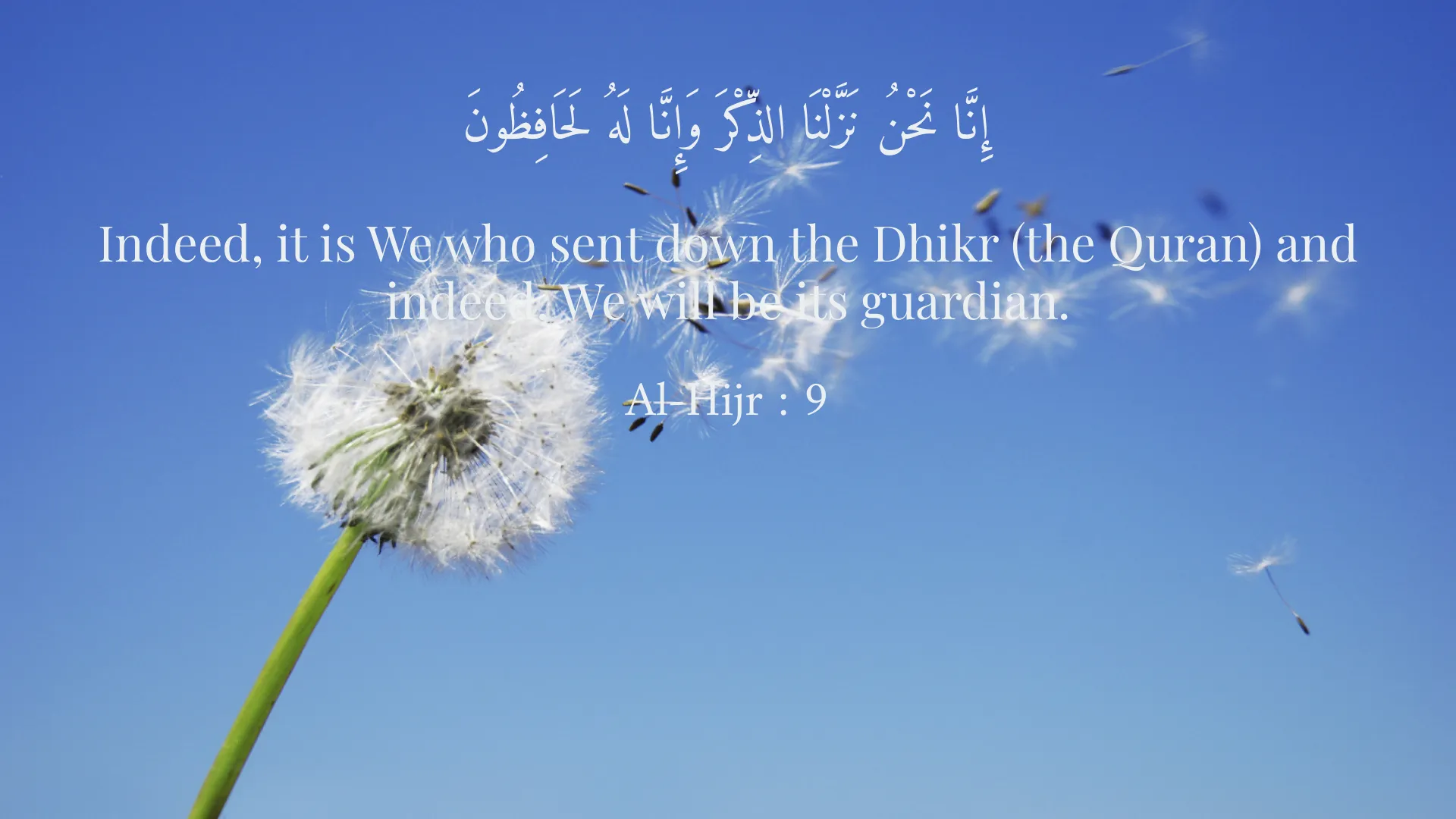Quranic Answer

Your question about the number of surahs in the Holy Quran is a fundamental and highly important inquiry regarding the structure of this divine book. To answer this question from a Quranic perspective, it's crucial to first clarify that the Holy Quran itself does not explicitly state the number of its chapters in any specific verse. This information is part of the historical and widely attested facts that have been universally accepted by the Muslim Ummah since the time of revelation and during the subsequent periods of the Quran's collection and codification. Indeed, the number of 114 surahs for the Noble Quran is an undisputed and undeniable fact that has been accepted by all Muslims worldwide since the early days of Islam, forming an inseparable part of the identity and structure of this divine miracle. This number, 114 surahs, is the result of a meticulous and careful process of collection and compilation that took place during the lifetime of the Prophet Muhammad (peace be upon him) and after his passing by the esteemed Companions. The Prophet himself, under divine instruction and with the guidance of the Archangel Gabriel, would place verses in specific locations, and the arrangement of surahs also occurred under his supervision and guidance. The Companions, with immense precision, wrote down and memorized the revelations. After the Prophet's passing, due to the necessity of preserving and safeguarding the Quran against any alteration or distortion, especially after the Battle of Yamama where many memorizers of the Quran were martyred, the need to compile the Quran into a single mushaf (bound volume) arose. This significant and monumental task began during the caliphate of Abu Bakr al-Siddiq (RA) and was finally and comprehensively completed during the caliphate of Uthman ibn Affan (RA). The current mushaf that we hold today is the fruit of those tireless and precise efforts. Each surah in the Quran, whether Meccan or Medinan, possesses its own unique characteristics, themes, and objectives. Meccan surahs generally focus on monotheism (Tawhid), prophethood, the Day of Judgment, and core articles of faith, while Medinan surahs primarily address legal rulings, social laws, jihad, and the formation of the Islamic society. These 114 surahs, together, form a cohesive and integrated body that encompasses all aspects of human life, from the individual to the societal, from this world to the hereafter, from faith to action. The diversity in the length of surahs, from the longest (Al-Baqarah) to the shortest (like Al-Kawthar), signifies the grandeur and breadth of Quranic concepts, arranged with an unparalleled divine order. The Holy Quran, in numerous verses, refers to its own majesty, its preservation by God, and the comprehensiveness of its guidance. For instance, in Surah Al-Hijr, verse 9, Allah states: "إِنَّا نَحْنُ نَزَّلْنَا الذِّكْرَ وَإِنَّا لَهُ لَحَافِظُونَ" (Indeed, it is We who sent down the Dhikr [the Quran] and indeed, We will be its guardian). This verse and similar ones provide a divine guarantee for the preservation of the Quran from any alteration or corruption. This preservation includes its text, the arrangement of its verses and surahs, and even their number. Therefore, although the precise number of surahs is not mentioned in a specific verse, the divine perfection and preservation of the Quran, referred to in numerous verses, implicitly includes the preservation of its complete structure, of which the 114 surahs are an integral part. This number and arrangement symbolize the completeness and perfection of this divine book, which has been preserved and transmitted in the best possible way for the guidance of humanity. Understanding this 114-chapter structure helps Muslims to study and reflect upon the verses with a particular order and consistency. Each surah, though part of a whole, often functions as an independent thematic unit, encompassing a set of teachings, stories, laws, or admonitions. Thus, the number of surahs is not merely a figure; rather, it signifies the perfection and meticulousness in the compilation and arrangement of the divine revelation, which has reached us through the mighty hand of God and through His Prophet and His esteemed Companions. These 114 surahs serve as a guide and a light for humanity until the Day of Judgment, and studying, understanding, and acting upon them pave the way for prosperity in this world and the hereafter.
Related Verses
إِنَّا نَحْنُ نَزَّلْنَا الذِّكْرَ وَإِنَّا لَهُ لَحَافِظُونَ
Indeed, it is We who sent down the Dhikr (the Quran) and indeed, We will be its guardian.
Al-Hijr : 9
إِنَّ عَلَيْنَا جَمْعَهُ وَقُرْآنَهُ
Indeed, upon Us is its collection and [then] its recitation.
Al-Qiyamah : 17
فَإِذَا قَرَأْنَاهُ فَاتَّبِعْ قُرْآنَهُ
So when We have recited it, then follow its recitation.
Al-Qiyamah : 18
ذَٰلِكَ الْكِتَابُ لَا رَيْبَ فِيهِ هُدًى لِّلْمُتَّقِينَ
This is the Book about which there is no doubt, a guidance for those conscious of Allah.
Al-Baqarah : 2
Short Story
They say in ancient times, there was a man who spent his life collecting scattered pages from books of wisdom. He considered each page a treasure, but he never possessed a complete book. One day, he met a wise sage and proudly showed him his collected pages. The sage kindly said, "My friend, there is wisdom in every page, but you will find the grandeur and perfection of wisdom in a comprehensive and organized book, whose chapters are arranged with a divine order. Only by seeing the entire collection can you grasp the depth and continuity of meaning." The man took heed of this advice and sought out complete books, realizing that true beauty lies in wholeness and organization. This story reminds us how the Holy Quran, with its 114 surahs, is a complete and comprehensive book where each surah forms a valuable part of a flawless whole, and only by understanding this totality can one fathom the depth of its guidance.